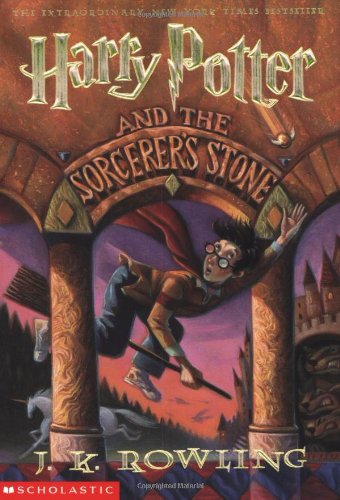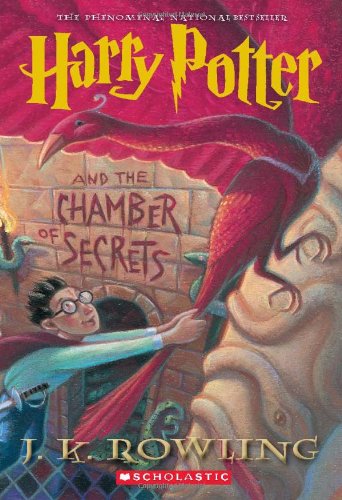The 2014 Books in (Mini) Review
2014 may be over, but, like last year, there's still plenty of time to reflect on what made it by far the best year of my life. While it wasn't quite because of any of the books below, they certainly didn't hurt. Because, you know, there were some damned fine reads.
Silver Surfer Omnibus by Stan Lee and John Buscema
Silver Surfer Omnibus by Stan Lee and John Buscema
I read this in preparation for the
newly launched volume of Silver Surfer by
Dan Slott and Mike and Laura Allred. What I expected, based on the more modern
iterations of the character (especially my all-time favorite limited series, Silver Surfer: Requiem), was not at all
what I got. This here is a Silver Surfer full of emotion and not afraid to
break down and cry. Also one who can put on a trench coat and go full
incognito, odd as that sounds. It was a great, dense read, and a beautiful primer for the newest
volume.
Far different than later books in
the series, The Gunslinger establishes
the overall tone of “Dark Tower” but is obviously by a less-seasoned author.
That isn’t to say it isn’t great. It is. But it feels like something that was
written for a magazine (which it was) and collected only later (which
it was). Not my favorite of the series, but by far the simplest and easiest to
read and enjoy.
The Dark Tower, Book 2: The Drawingof the Three by Stephen King
My favorite of the series, Drawing of the Three is an outright
asskicker through and through that never stops surprising. It also tackles more
themes than any of the other books by allowing us to view the different time
periods and conflicts of the individual characters. I only wish the Three of the title wasn’t such a false
lead.
This was a fun book. Seeing the
Lochness Monster as a seductress was particularly inspired, but bending Bigfoot
into a noir detective role was utterly fantastic. And, surprisingly, fit incredibly well. I do wish the book was
in color, but I understand the cost constraints of self-publishing. There was a
follow-up issue recently published, but I’m hoping for a full-on second volume.
Waste
Lands cemented my love for Jake and Oy,
but also ended with what could possibly be the most frustrating cliffhanger in
all of literature. Thankfully, I didn’t read “Dark Tower” as it was released,
so I didn’t have to put up with that longer than it took for me to take Wizard and Glass off the shelf.
Although it offers some of the best
character work of the series, as well as a sweet, if not immediately doomed,
romance, Wizard and Glass felt more
like filler to me than anything else. It also was the first that seemed to
really tie “Dark Tower” to the rest of King’s books, at least overtly. Really,
I think it’s the series’ low point, though I know I'm in the minority there. Thankfully, that means it only goes
up from here on out.
Harry Potter and the Sorcerer'sStone by J.K. Rowling
I had avoided the Potters for year,
but finally read the series around 2009 or so because I was forced to write
about it almost constantly. I’m glad I convinced myself, though, because although
Rowling obviously took influence from past fantasy writers, she
presents them in a nice new package and in a very family-friendly way. I read
this to my unborn and later newborn, and he never seemed to be confused. So,
that’s saying something.
I wish this never ended. This was
just such a perfect series and prequel to what quickly became my favorite
videogame of all time. While some was later repurposed/built upon in the “Left
Behind” expansion, I could have sat there and read this over and over. I need
more Last of Us.
I read What to Expect When You’re Expecting, so there wasn’t much here
that really surprised, but Pfeiffer nicely repackages that for the man here, in
a way we can obviously relate (the chapter “dedicated” to men in What to Expect was more Everybody Loves Raymond than anything
else). I’d recommend it for any husband or boyfriend or whoever about to take
the plunge into fatherhood.
After an apparently huge break
(though not so huge for me), King returned to his infamous series in grand
fashion, but reading these all in a row does this book something of a
disservice. He explains it off in the afterword, but compared to the first four
titles, this one is overloaded with foreign language, mythology and
otherworldly nonsense that fail to add much to the series, rather taking away
from what had previously been a realistic adventure with touches of fantasy and
mysticism. I liked it more than Wizards
and Glass, but I wonder what the book would have been like had the pre-accident King written it.
Harry Potter and the Chamber ofSecrets by J.K. Rowling
Chamber
of Secrets is a marked step-up from Sorcerer’s Stone, but still not at the
heights of the later volumes of the series. Still, it has some fun ideas and
introduces us to a ton of key elements in a less breakneck fashion than the
first outing.
Susannah was my least favorite
character of all “Dark Tower,” so much of this book just proved frustrating
and a chore. It didn’t help that the pregnancy seemed tacked into the series in
Wolves, never seeming as a very
natural evolution from Wizard, or
that King himself began showing heavily within the books, but at least the
latter was fun and cool in an in-universe origin story kind of way.
The Killer, vol. 4: Unfair Competition
by Matz and Luc Jacamon
I'm rather fond of this series, but Unfair Competition doesn't hold to the heights of previous volumes, which often surprised and kept me on edge while this simply continued along it's somewhat meandering plot. The art was still great, and the plight of the characters real, but it was lacking that certain something that makes this series so memorable.
I'm rather fond of this series, but Unfair Competition doesn't hold to the heights of previous volumes, which often surprised and kept me on edge while this simply continued along it's somewhat meandering plot. The art was still great, and the plight of the characters real, but it was lacking that certain something that makes this series so memorable.
The Dark Tower, Book 7: The Dark Tower by Stephen King
I suppose my love of this book stems
mostly from the fact there are two distinct endings: the happy and the
impossibly sad. The latter is the stronger by far, and anyone who chose to
dismiss it has done the series a disservice, but that’s only my own opinion.
Regardless, it was satisfying in more ways than one, and a welcome end to the
tour-de-force that was this series.
The Wind Through the Keyhole by Stephen King
A bit of an aside placed in the "Dark Tower" canon, this was a fun little tale I'm thankful wasn't in the actual series, as it has little bearing on the overall plot. Supposedly, this is the first of a few similar tales, which I'd gladly welcome.
The Wind Through the Keyhole by Stephen King
A bit of an aside placed in the "Dark Tower" canon, this was a fun little tale I'm thankful wasn't in the actual series, as it has little bearing on the overall plot. Supposedly, this is the first of a few similar tales, which I'd gladly welcome.
I loved Black Dossier and enjoyed Century,
but these latest Nemo books have been
hit and miss from the League of
Extraordinary Gentlemen team. While Heart
of Ice feels like a traditional adventure tale from the turn of the century
or so, it’s lacking any of the pizazz and heart that made previous volumes so
special. And do we really need to insert references just because they exist?
I haven’t seen the film version of 2001 in some time, but what I remember
of it is confusion, particularly the final act. Clarke’s book takes a
lot of the guesswork away and actually explains what’s happening, and, unless
I’m remembering incorrectly (I need to rewatch the movie very soon), the ending
is rather different as well. This is a modern sci-fi staple, and it deserves
its place.
Not nearly as memorable as 2001, 2010 suffers from walking in the former’s shadow and even goes so
far as to include a few excerpts from the blockbuster. It’s also hurt by
following the same basic structure as the original, though the continued concept behind
HAL proved interesting and, as with 2001,
the book remained a quick and engaging read.
The final Odyssey I own was also the
weakest of the bunch, as very little seemed to actually “happen” in 2061 compared to its predecessors. Sure,
there were some fun set pieces, but the central premise surrounding the diamond
mountain was telegraphed from the start and led to nothing quite remotely
interesting aside from what seemed to be setup for 3001 (which I totally need to buy).
The Walking Dead Omnibus Vol. 1 by
Robert Kirkman, Tony Moore Charlie Adlard
The issues that started it all are
as good a read now as they were then, and comparing them to the show makes the
book all that more fun. However, reading it over, I wish Tony Moore had stayed
on the book past the six issues, as I much prefer his art to Charlie Adlard’s,
which, though now prolific, is more lax with details and shadows.




















Comments
Post a Comment